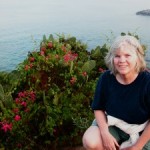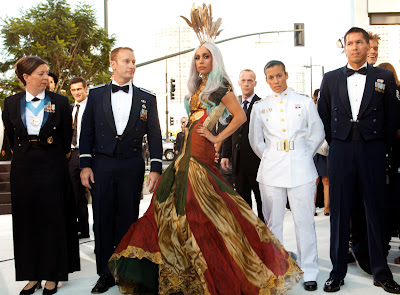Articles in Where Are They Now?
Six Degrees of Pride Foundation: Patricia Van Kirk

Pride Foundation’s Tiffany McClain writes about former Juneau resident Patricia Van Kirk, whose contributions to lesbian arts and culture in Alaska and Washington have left a legacy that will continue to live on through the Patricia Van Kirk Scholarship fund.
Why should LGBT college students return to Alaska after graduation?

 Bent Alaska received a great topic request from an Alaska-raised grad student who is studying in the lower 48: What is it like to be an openly LGBT professional in Alaska?
Bent Alaska received a great topic request from an Alaska-raised grad student who is studying in the lower 48: What is it like to be an openly LGBT professional in Alaska?
I’m a new reader to your blog and 18-year Alaskan. I left Alaska to go to university in 2005 and stayed for medical school. I’m currently in my seventh year. At my university there are usually about 5 or 6 kids from Alaska each year and inevitably, most are gay. In my year, only one of the kids from Alaska was not gay (and he was an awesome dude!)
It seems like a lot of young gay Alaskans get out of Alaska as soon as they can — that’s old news. What I’m interested in are those Alaskans who are gay who left, but went back.
Why did they choose to return? How have their experiences been? What is it like to be an out professional in Alaska? Rural v. urban? What kind of community awaits them? Did they return with a partner?
I’d love to read more in depth about this issue!
OK, readers — what do you think? Did you return after graduating from an out of state school? Tell us your reasons for returning, and what it’s like for you as an LGBT professional in Alaska. Leave a comment below, or email us directly at Bent Alaska @ gmail .com (without the spaces), and we will include your response in the follow up post. Help this university student and others decide where to start a career after graduation.
And if you have a topic you’d like to see on Bent Alaska, please tell us about it!
Photo: A crowd of college students at the 2007 Pittsburgh University Commencement, by Kit of Pittsburgh. Via Wikimedia Commons; used in accordance with Creative Commons licensing.
GLAAD recognizes Anchorage-raised comic book artist

The Anchorage Press last week ran a profile by Scott Christiansen of animation and comic book artist Brad Rader, who did the illustrations for the graphic novel Fogtown (published 2010), a finalist for best comic book in this year’s GLAAD Media Awards of the Gay and Lesbian Alliance Against Defamation. (The winning comic book was DC Comics’ Batwoman.)
Gay Alaskan joins AmeriCorps, makes it better for himself and other youth

Kevin Viado was raised in Kodiak, had never been to a gay event, and described himself as “really shy” before joining AmeriCorps. After several months of helping other people, with a team of mostly straight young adults who like and accept him as he is, he is now confident enough to make his own It Gets Better video and help other LGBT youth.
Dennis Goff (1951-2010)

Dennis Goff, formerly of Anchorage, died unexpectedly at the age of 59 on Nov. 3, 2010, in Hawaii. Sorry for the late posting, I didn’t know until recently. His legacy book is still open, and friends are encouraged to add a message. Condolences to his partner Sheldon, his many friends and students, and all who were touched by his life and his music.
A local gathering was held in the UAA recital hall. His ashes were divided among his favorite Hawaiian beach, the Chugach Mountains in Alaska and his family’s hometown in Ohio.
Born Aug. 19, 1951, in Toledo, Ohio, he graduated from East Anchorage High School in 1969, and taught voice and English in the Anchorage School District until his retirement in 1994.
After retirement, Dennis continued to tutor students in his home and advocated for their success in the music profession. His was a familiar face at many musical venues throughout the city.
He was a member of the National Association of Teachers of Singing (NATS), Anchorage Community Chorus, Alaska Chamber Singers, Anchorage Festival of Music, Trattoria Singers, Anchorage Opera, Camarato Otto and Waikoloa Outdoor Circle.
One of Dennis’s favorite excursions was sharing with friends the beauty of Denali National Park. Another special recreation spot was the Chugach Mountains. It was his desire to move to a sunny climate. That goal was met when he recently relocated to the Big Island of Hawaii.
Warm and good-natured, Dennis was a reliable friend whose sunny smile and quirky humor endeared him to those of us who knew him best. Though he is gone too quickly, he enjoyed every day, especially the last few months in his Hawaiian paradise. The space he left cannot be filled. He cared deeply about us, and has a permanent place in our hearts, where he will always make music.
He was predeceased by his parents, Harvey and Violet (Lemon) Goff, who lived in Port Clinton, Ohio.
Surviving family members include his life partner, Sheldon Meier of Waikoloa Village, Hawaii; his sister, Marsha (James) Elsen and niece Becky Elsen of Croton, Ohio; nephews, Jimmy Elsen of Anderson, Ind., and Scott Elsen of Bay City, Mich.; and many close friends in Anchorage.
In lieu of flowers, a donation in Dennis’ memory may be sent to the National Association of Teachers of Singing, Alaska Chapter Student Scholarship fund, 9050 Basher Drive, Anchorage 99507 or to a charity of the donor’s choosing.
The obituary above was in the ADN. He was also remembered in West Hawaii Today, which covers his home in Waikoloa Village.
Rest in Peace, Dennis.
Alaska Native youth for Scott McAdams

Verner Wilson III, who spoke at Pride Conference last year, is at the Alaska Federation of Natives Elders & Youth Conference this week and is one of four Alaska Native youth in a new video for U.S Senate candidate Scott McAdams. McAdams grew up in rural Alaska, worked as a fisherman in western Alaska and supports the teaching of Native languages. He also supports LGBT equality.
Here is the video:
Verner shared more reasons for supporting McAdams:
5 things you might not know about Scott McAdams
1) He was born to a single mother in rural Alaska, and admitted they didn’t always have food in the cupboard of their small house growing up.
2) He fought at School Board conferences to allow schools to teach Alaska Native languages.
3) He’s just 40 years old, and wants to gain seniority in the US Senate and use this power to make Alaska energy-independent and help us in the long run while voting for Democratic values (unlike Lisa who is entrenched by big oil and Republicans).
4) As a fisherman in Sitka alongside his indigenous wife, they understand and will fight for subsistence…HE’S ONE OF US!
5) He’s within striking distance of beating both the Republicans in the latest polls and if you vote for him you can put him over the top, really pissing off Joe Miller!
UA retired professor on coming out in the sciences

The writers at boingboing realized they’d never seen a Coming Out Day feature dedicated to the experiences of lesbians, gay men, bisexuals and transgendered persons in the sciences and engineering, and hoped to add to the diversity of stories and help science-minded young queer folks everywhere know that it does, indeed, get better.
Early Oppression Led to a Happy Life in the Sciences
Becoming a minister was my first career goal but the clash between being gay and the church killed that intention. At the same time—age 16—being gay also got me kicked out of my parent’s house. In high school I had won science fair awards, prompting the military to persistently recruit me, so with the seminary door closed I decided to become an officer. Military college tuition and benefits were a tantalizing opportunity for a teenager on his own with no money … but while actually filling out the induction papers at the recruiting station I discovered I had the option to either lie about being gay and be in, or be honest and be out. I chose to be out—in more ways than one. The remaining career path on my list? Science. I worked my way through university in part by serving food to military-funded students and washing their dirty dishes, yet am still glad I did not lie. A life in the sciences has worked out so much better!Internships and field studies with the Institute for Southeast Asian Studies, Indonesian Institutes of Ecology and Parasitology, and in industry led to decades of work on a diverse range of fascinating and rewarding projects. Human ecology in Java, mariculture in Ecuador, agricultural research in New Jersey and California, health science education and disease prevention projects in Alaska and Nepal. At some junctures being gay in the sciences has meant hitting a glass ceiling, no doubt about it; for example, the same year I ultimately won a national award I was conspicuously passed over at the state level in Alaska. There has been definite progress over the years, though, thanks in large part to the efforts of NOGLSTP working with AAAS and other professional associations.As with being LGBTIQ, being a scientist is as much—if not more—a privileged perspective and invaluable approach to perceiving and understanding the world than how one is defined by professional employment or simply by the nominal fact of for whom one feels affection. Whenever I work with students I have them draw a scientist; they usually draw a man in a lab coat pouring chemicals or peering through a microscope. Especially with LGBTIQ youth, I know I have been successful when at the end of the course I ask them again to draw a scientist and they draw a smiling self-portrait. Out and proud career role models for LGBTIQ youth have too long been restricted to hairdressers, dog groomers, and positions in the arts.Our youngest recently graduated from high school and flew the nest for university; with her away my partner and I decided to retire. We moved from Alaska to Hawaii, where I am beginning work with some local efforts on rat lungworm, dengue fever, and other emergent and resurgent tropical diseases as well as with FASD (Fetal Alcohol Spectrum Disorders). Overall, life as a gay man in the sciences these past decades has been good; thanks to folks like you being out and proud I expect the outlook for our children and students to be even better.
Former Alaskan speaks to Pentagon on DADT and gay partners


Fairbanks ex-Air Force sergeant sues Rapid City, SD

“Given the city of Rapid City’s unwillingness to acknowledge the wrongful and unlawful acts done by Officer (Jeremy) Stauffacher, (Det. Tom) Garinger and other members of the police department, we have no choice but to file a lawsuit against the city of Rapid City in federal court,” [Newsome’s attorney Jeffrey] Fransen said.Newsome’s case first came to light in March, when the American Civil Liberties Union of South Dakota sent a letter to Mayor Alan Hanks alleging the police department had violated Newsome’s privacy and constitutional rights by sharing information about her sexual orientation with Air Force officials.In the March 19 letter, ACLU executive director Robert Doody asked the police department to pay damages and issue an apology to Newsome, along with reprimanding the officers involved in the incident and changing department policy to ban the release of information about military members’ sexuality.The incident in question occurred Nov. 20, 2009, when officers, in the course of serving an out-of-state felony arrest warrant on charges of grand theft for Cheryl Hutson, noticed an Iowa marriage certificate with Hutson and Newsome’s names on it at their home.That detail was included in the police report, a document that Garinger later shared with the Office of Special Investigation at Ellsworth. Stauffacher was also involved in the arrest.Newsome was discharged from the military in January. Under the military’s “don’t ask, don’t tell” policy, service members cannot be asked about their sexual orientation, but evidence of homosexual behavior is grounds for discharge.The ACLU of South Dakota got involved in February, when it filed a formal complaint against the police department for its role in Newsome’s discharge.Police Chief Steve Allender responded with an internal investigation March 19 that concluded no department policy had been violated by providing the police report to base officials. Allender said it was long-standing policy to share information with the Air Force when a service member’s conduct is potentially criminal.
Former Elmendorf NCO escorts Lady GaGa to MTV awards to support DADT repeal

Lady Gaga won 8 MTV Video Music Awards on Sunday, and former Elmendorf AFB staff sergeant David Hall (far right in photo) escorted her to the show, along with three other service members who lost their military careers because of the ban against open service by gays and lesbians, a policy known as “Don’t Ask, Don’t Tell” (DADT).

Lady Gaga spoke in favor of repealing DADT when she accepted her award for Best Female Video for “Bad Romance” and thanked the four “discharged soldiers” who came with her, adding “And thank you to all the gays for remaking this video over and over again.”
Her escorts were former U.S. Air Force Staff Sargent David Hall; former U.S. Air Force Major Mike Almy; top West Point cadet Katie Miller, who resigned in August in protest of DADT; and Former U.S. Army Sargent First Class Stacy Vasquez.
David Hall was a decorated Elmendorf NCO before starting officer training at the University of Alaska, Anchorage, and was a top student in the Air Force ROTC. He was dis-enrolled from the ROTC because a female cadet suspected he was having a relationship with Jack Glover, another UAA airman, and told their superior officer. Both men were kicked out because of the DADT policy.
A federal judged ruled DADT unconstitutional last week, but the government is expected to appeal the decision. The U.S. House already passed a repeal of DADT, and the Senate vote is scheduled for next week.
Call your Senators today at 202-224-3121 and urge them to repeal the policy!
Senotor Begich supports repeal, while Sen. Murkowski is undecided. But she voted for the Hate Crimes Act after hearing from Alaskan voters. She lost the GOP nomination and has not announced a write-in campaign, so she might be persuaded to vote for the Defense Budget and the DADT repeal.
In Feb. 2008, KTVA in Anchorage aired a special report on David Hall and “Don’t Ask, Don’t Tell” (one of the first videos ever posted on Bent Alaska).
This week, Hall was interviewed by MTV about escorting Lady GaGa to the Video Music Awards:
“We met her before the show last week and told her our stories, and that’s when she said she wanted to do more,” said David Hall, 36, a former member of the Air Force who was booted out in August 2002 after a female cadet told his commander that he was gay and in a relationship. When confronted, Hall said he told his commanding officer he had no comment, but “he took her word for it over mine,” and Hall, a five-year veteran, was discharged.
“We talked to [Gaga] for a bit and she said, ‘It would be great if I could bring you to the VMAs,’ ” he said. A longtime Gaga fan, Hall was ecstatic about the idea, but said it seemed unlikely that they could pull it off on such short notice. But when you’re Lady Gaga and you have 13 VMA nominations, it seems anything is possible.
“I just kept thinking, ‘How can we get this together? Can we do it that fast?’ ” Hall said. “To my surprise, we were able to pull it off.”
Hall and three of his cohorts — Katie Miller, Stacy Vasquez and Mike Almy — ended up walking the white carpet with Gaga and chatting with MTV’s Sway before they took their seats right behind Gaga in the Nokia Theatre in some of the most primo spots in the house.
Hall has been working with the Servicemembers Legal Defense Network (SLDN.org) since 2006, helping the advocacy organization push to have “Don’t Ask” repealed. He said even with all the work he’s been doing for the organization, having Gaga spread the word to her 6 million Twitter followers and millions of VMA viewers was a huge boost.
“I’ve done tons of media over the past four years … but I knew she would reach out to her Little Monsters and tell them about the repeal of ‘Don’t Ask’ on the white carpet and [it would have a huge impact],” he said. “You couldn’t ask for a better person to do it. She’s very genuine. It’s not some ploy to get attention. She really wanted to know about the repeal and why we need to get rid of ‘Don’t Ask.’ ”
… Gaga’s decision to use the VMA platform to publicize the attempt to push the repeal of “Don’t Ask” through — a commitment President Obama made during his campaign and which he has repeatedly said is his goal — came at just the right time, according to Hall.
“The Senate is just coming back and we’re hoping that they will pass something this month,” he said, noting that Democratic control of Congress could possibly be weakened if Republican candidates score key victories in the November elections, which could set the repeal process back once again. “We were telling her that it is very important to speak out on this now,” Hall said of SLDN’s message to Gaga, who paid for the service members to fly out to Los Angeles for the VMAs.
In addition to their swank seats and walk down the carpet, Hall said the organization members met with Gaga as she was prepping for the show earlier in the day Sunday to go over talking points. They also were invited to attend the post-VMA party put on by Gaga’s Interscope Records label, where they chatted with Mother Monster and her actual mother, Cynthia Germanotta.
Hall’s highlight? “She gave us a shout-out during the acceptance for her first award,” he said. “And the interview with Sway on the white carpet … But every time Lady Gaga won, it was great. And when she won Video of the Year, I loved her meat outfit.”
Video: Lady Gaga Introduces Special Guests On VMA White Carpet
2010 MTV Video Music Awards – More VMA Video
David Hall is currently the Development Director & Information Technology Manager of SLDN.





















